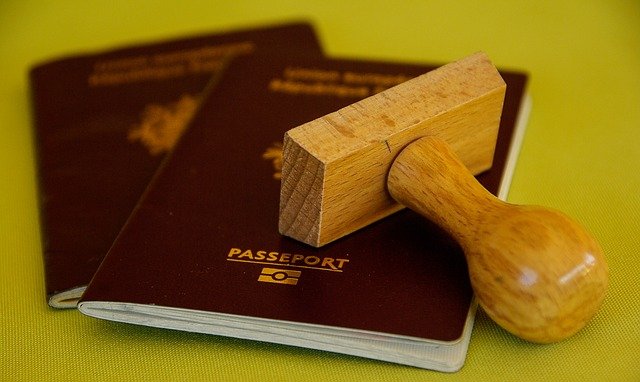A Guide to Screening International Rental Applicants
Screening is vital to assess tenants to ensure they will pay on time and take care of your property. But what specifically needs to be checked for overseas tenants to verify their right to rent? Read on to learn the ins and outs of the official process so that you know what’s required to meet the strict Government guidelines.
You know the importance of finding reliable tenants, and tenant screening plays a bit part in this. Property management and maintenance companies use screening to assess whether tenants will be able to meet the terms of a lease and how well they’ll look after a property, as well as whether they’ll be able to cover the rent. The process is fairly standard, but when it comes to screening international rental applicants, there are additional checks that need to be carried out, including verifying a tenant’s right to rent. Let’s take a look at what’s involved in screening overseas tenants.
Legal requirements
Ahead of the start of a new tenancy, it is a legal requirement that landlords check all tenants aged 18 and over, even if they are not named on the tenancy agreement or there is no tenancy agreement. It is against the law to only check people who you think are not British citizens, so be sure to extend your checks to everyone.
For tenants who are only permitted to stay in the UK for a limited time, checks must be carried out during the 28 days ahead of the start of the tenancy. If however the tenant will be staying in social housing; a care home, hospital or hospice; a refuge or hostel; a mobile home or student accommodation, then checks will not be necessary.
Whilst it is also not necessary to check tenants where the lease is seven years or more, or where the accommodation is tied to their job, certain other checks may be necessary. If the accommodation is to be provided by a local authority, then no checks are required if housing is being provided in response to a statutory duty or in order to avoid homelessness. However, it is vital that you follow the government code of practice in all such cases.
What is the official process for screening international tenants?
The following steps are mandatory when screening international tenants in most cases:
- Request proof that any adults using your property as their main residence have the right to live in the UK. You will need to see original documents.
- Check the documents and verify whether the tenants have the right to rent your property. Here’s how. You will need to check that the tenants’ documents are genuine. Normally this would be done with the tenant present, however due to COVID-19, alternative procedures have been put in place.
- Keep copies of the documents and record the date the checks were made.
Where the tenant does not have the right documents, you’ll need to use the landlord’s checking service to verify whether the tenant is allowed to rent.
If you rent your property to someone who does not have the right to stay in England, then you could be liable for an unlimited fine or a prison sentence.
How to check EU, EEA and Swiss citizens
Right to rent checks must follow the regular process until 30 June 2021 for citizens of the EU, Switzerland, Norway, Iceland and Liechtenstein. You will need to continue checking passports and national identity cards, and for family members, simply follow the usual guidance on acceptable right to rent documents. It is illegal to ask these citizens to prove they have settled or pre-settled status ahead of commencing a tenancy.
How to check whether the property will be used as the tenant’s main residence
Generally, properties will be the tenant’s only or main residence if they live there most of the time; they keep the majority of their belongings there; their children or partner live there with them and they are registered with the local doctor and electoral services.
What else needs to be included in tenant screening?
As well as right to rent checks for international tenants, you’ll also need to carry out a credit history search including a financial and payment history, as well as verifying income and checking employment details. A reference from a previous landlord, where applicable, should also be sought.
Tenant screening: an easier solution that factors in property management and maintenance
If as a landlord you are harbouring concerns about your responsibilities in regards to screening international tenants, then there is a way to overcome them and at the same time have your property management and maintenance tasks covered too.
At homes2let, we offer a guaranteed rent scheme that secures your rental income, and takes away all the day to day management hassles that are part and parcel of being a landlord. This includes tenant screening.
If you have been looking at property management companies in Croydon, why not opt for homes2let? Not only do we fully manage your property, we also guarantee your rent. To find out how we can make your life as a landlord so much easier, you are welcome to get in touch.
Related Insights

How has COVID-19 Changed Property Management?
Property services managers take care of a host of things, many of which have been impacted by the coronavirus pandemic. Let’s take a look at how COVID-19 has changed the various aspects of property management including safety checks and rent collection.

Government Reveals Plans for Evictions Ban Wind-Down
The government has announced plans to wind down the current evictions ban, meaning that landlords finally have some clarity on moving forward with evictions that are currently on hold, and have been for some time. Bailiffs will as a result be able to reinstate their roles from 1st June 2021.

Breathing Space: Debt Respite Scheme to Prevent Landlords From Chasing Unpaid Rent
From 4th of May 2021, a new government scheme will come into force that will give anyone with a problem debt a legal right to protection from creditors. This includes tenants who are in rent arrears with a debt owed to their landlords. The ‘Breathing Space’ arrangement, otherwise known as the Debt Respite Scheme, will allow debtors time to find a solution to their financial issues.







